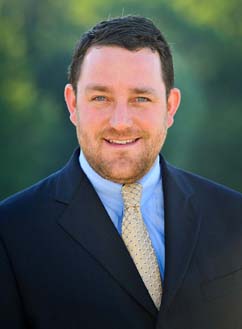A Message from the Executive Director

Dear Readers,
I believe that smart philanthropy draws from many voices. Our latest initiative launched earlier this month called “Philamplify” harnesses the knowledge, wisdom and power from the collective to improve the impact of philanthropy in our communities. If you haven’t had a chance yet to visit the website and check it out, I hope you’ll do so.
As NCRP and its allies continue our efforts to help solve the tough problems our society faces, it behooves us to remember that philanthropy supporting relationship-building has the opportunity to take limited dollars further. Many of the articles in this edition of Responsive Philanthropy show how strategies like this can succeed.
Our cover story by National People’s Action executive director George Goehl, “Beyond Collaboration: Bringing Strategic Thinking to Long-Term Alliance Building,” explains how NPA’s move from a “no permanent enemies, no permanent allies” philosophy has allowed it to respond more quickly and effectively to critical issues. George recommends that grantmakers invest in nonprofits whose initiatives are as defined by relationship-building as they are clear objectives.
In “CPSD’s Campaign to Raise the Minimum Wage for Disabled Workers,” Allison Hassett Wohl describes the Collaboration to Promote Self-Determination’s recent successful campaign to include disabled workers in President Obama’s executive order to raise the minimum wage for federal employees. Still, work remains to be done in this fight for equality, and Wohl explains how CPSD’s partnership with the Ruderman Family Foundation will continue to be crucial.
Charlie Bernstein, former executive director of Maine Initiatives and a community organizer, illustrates how national organizations and campaigns can hurt – or help – local groups. In “It’s How, Not Whether,” he points out the long history of dropping national organizers into local groups to bolster issue campaigns – even though these campaigns don’t always benefit local communities, or even fully make use of their capabilities.
Riki Wilchins’ “A Lesson in Feminine Norms: Why Philanthropy Matters to Educational Outcomes” explains how gender norms hurt female students’ performance in science, technology, engineering and math (STEM) subjects. Riki gives tips on how foundations can take a gender transformative lens to their organizational approaches, yielding more effective results than if they ignored the influence of feminine and masculine norms.
Finally, our Member Spotlight delves into the work of the Joint Center for Political and Economic Studies, a U.S. think tank providing policy analysis and research to benefit communities of color.
We hope you’re inspired by the many different voices represented in the following pages, and find information that’s useful in your own work. We’re always interested in hearing from our readership. Send us your thoughts at readers@ncrp.org.
Sincerely,
Aaron Dorfman